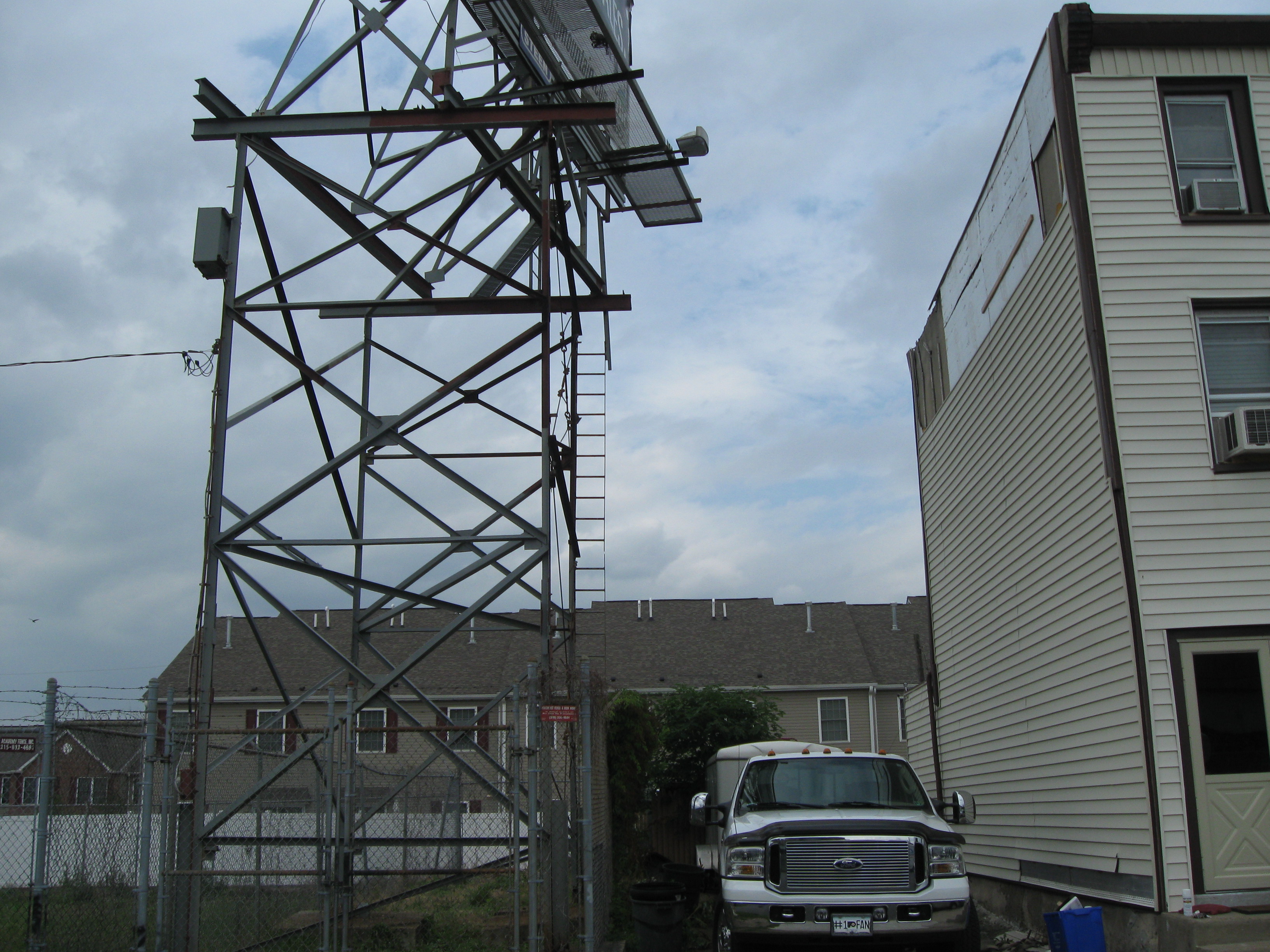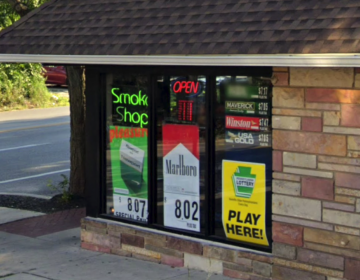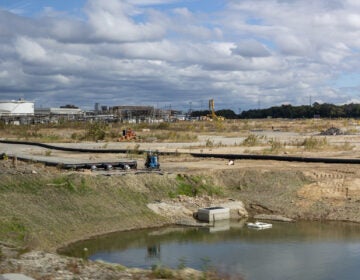Planning Commission approves billboard overhaul, opposes ads in schools

The Philadelphia City Planning Commission weighed in on nearly a dozen pieces of zoning legislation Tuesday, approving some, opposing some, and asking for more time to consider others. It’s worth remembering that City Council controls the zoning code, and that body may choose to accept or reject the recommendations of the Planning Commission. Council cannot pass a zoning bill before the Commission gives its recommendation, however, so in some cases the Commission can delay a piece of legislation.
New rules for billboards
The Planning Commission voted, with conditions, to approve a bill overhauling regulations related to non-accessory signs, a bill sponsored by Councilman Bobby Henon and which is still in flux. The bill as currently written sets up three zones for billboards, areas where they can be maintained only, where they can be converted to digital by right (as long as one other billboard is taken down, a 1:1 replacement ratio), and where they can be converted to digital by special exception, with a 2:1 replacement ratio. The bill also would allow for nonconforming and illegal signs to get new permits as long as there isn’t any pending enforcement action against them. A member of Center City Residents Association pointed out that it is a “very small universe” of signs with pending enforcement action.
The Planning Commission staff’s conditions on approving the bill included increasing the replacement ratio in by-right conversion zones to 2:1, and in special exception zones to 4:1. The Commission accepted those recommendations and added a few more: that no illegal signs be permitted, and that the maximum brightness of digital sign displays be lowered from 7,000 nits to 5,000 nits.
The bill could get a first reading in City Council this week.
Advertising on school property
A bill that would allow non-accessory advertising in, on, and near school property was roundly rejected by a unanimous vote of the Planning Commission, with very little discussion. The bill’s sponsors, Council President Darrell Clarke and Councilwoman Blondell Reynolds-Brown, believe it’s a way to bring in new revenue without raising taxes. But the Planning Commission and its staff agreed that it is bad planning policy.
North Broad Street advertising district
The Planning Commission asked for 45 additional days to consider a bill from Council President Darrell Clarke creating a special advertising district on North Broad Street, between JFK Boulevard and Lehigh Avenue. The request for more time means Council will likely be unable to pass the bill until some time in 2014. PlanPhilly will have more on this proposal in the next few weeks.
Auto-related industrial uses
Generating the most discussion of the day were two bills from 2nd-District Councilman Kenyatta Johnson aimed, according to Commission staff member Andrew Meloney, at stopping the spread of auto-related industrial activity in Southwest Philadelphia. One bill would remap swaths of land between 54th Street, 84th Street, Springfield Avenue, Lindbergh Boulevard, and Cobbs Creek, from I-2, a medium-industrial classification, to ICMX, an industrial commercial mixed-use category that includes less noxious uses than I-2.
Johnson’s other bill would make the ICMX category less impactful still, by prohibiting all uses in the Vehicle and Vehicular Equipment Sales and Services category, except for gas stations. That bill would affect ICMX districts citywide, and was a cause for concern among Commission members. Nancy Rogo-Trainer pointed out that it would prohibit personal vehicle rental facilities, which she said can be an important neighborhood amenity for people who don’t own cars. Alan Greenberger said it would prohibit neighborhood auto-body shops, another useful amenity.
Greenberger asked if Councilman Johnson would be willing to change the ICMX category in just the area of concern—a momentary break with the Planning Commission’s strong preference for citywide policies over neighborhood-by-neighborhood overlays. Staff member Meloney said that he was sure Johnson would be fine with an overlay, but that the staff had recommended the citywide change.
In the end, the Commission approved the remapping, and by a split vote, with Alan Greenberger breaking the tie, approved the changes to ICMX as well. The Commission’s approval of the citywide ICMX changes came with the recommendation to keep the personal vehicle sales, rental, and maintenance uses permitted in the district.
The bill will get a hearing in Council’s rules committee on Dec. 3, at 10 a.m.
Variance standards
The Planning Commission easily and unanimously approved a bill from Councilman Brian O’Neill, which amends the code to say that the zoning board must grant the least possible variance in the case of both use and dimensional variances. Commission staffer Paula Brumbelow said that is what the code’s intention has always been, so stating it more clearly is no problem.
Consequences for ignoring community groups
The Commission requested 45 more days to consider a bill from Councilwoman Cindy Bass that would require zoning applicants to submit sworn written testimony, under penalty of perjury, of having met with local community groups before any variance or special exception is granted. Commission members worry about adding an extra step to an already cumbersome process for small businesses and individual homeowners, and Alan Greenberger said he only knew of one case in which a developer had been dishonest about having met with a group. The code already requires a meeting between developers and community groups prior to zoning hearings. Planning Commission staff said Councilwoman Bass’s office has agreed to take the additional 45 days to work out a solution that doesn’t cause unintended consequences.
Restricting medical offices in the Northeast
The Planning Commission also opposes a bill from Councilmen Brian O’Neill and Bobby Henon that would prohibit medical offices in their districts, the 6th and 10th, which cover most of Northeast Philadelphia. Commission staffer Martin Gregorski said that the bill is intended to give neighborhood groups a say at the zoning board when new medical offices are proposed, as they sometimes create traffic problems. He also suspects, he said, that the bill is a backhand way of barring methadone clinics in the Northeast.
Laws that block a certain legal use from being allowed by right everywhere in a municipality are considered “exclusionary,” and unconstitutional. Since the bill in question is targeted to Northeast Philadelphia, Gregorski said the Law Dept. is OK with it. But the Planning Commission is not. The bill has already been approved by a Council committee.
Parking in the driveway
Another O’Neill bill, allowing residents to park in driveways in the front setbacks of their homes as long as the car doesn’t block the sidewalk or the street, was also opposed by the Commission. Alan Greenberger said several community groups oppose the bill, and that it could lead to neighborhoods seeing green space in front yards converted to driveways. That bill has also been approved by a Council committee.
Administrative changes
Finally, the Commission approved two bills its staff helped to draft in response to the zoning code One-Year Report, and which are aimed at making technical and substantive changes to the new zoning code. One provision of these bills in particular generated some discussion.
In high-density mixed use districts, the bill would change the standards for above-ground parking garages. Currently, in RMX-3, CMX-4, and CMX-5, developers can build above-ground parking by special exception only. The amendment would allow developers to build up to 200 percent of the minimum required parking spaces above-ground, and would require a variance for anything more than that.
Members of some community groups, including Ed Panek of Logan Square Neighborhood Association, oppose the removal of the special exception requirement. Craig Schelter of Development Workshop opposes the variance requirement for garages that provide more than 200 percent of the minimum. He said that the market, in the form of financiers, often want more parking availability, and that the Commission’s inclusion of a variance requirement could discourage development in Center City.
Both bills will be heard by Council’s Rules Committee on December 3rd.
WHYY is your source for fact-based, in-depth journalism and information. As a nonprofit organization, we rely on financial support from readers like you. Please give today.






